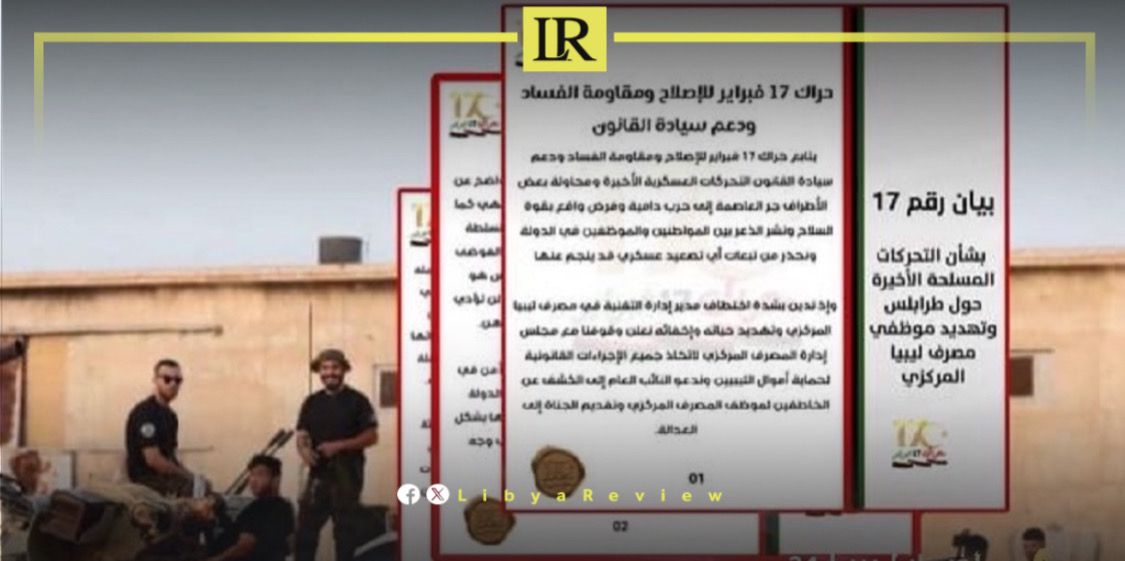On Sunday, the February 17 Movement in Misrata issued a strong warning against the rising military tensions in Tripoli, cautioning against the devastating consequences that could unfold if the capital becomes a new battleground.
The movement has been vocal in its opposition to efforts aimed at changing the political landscape through force and violence, instead advocating for dialogue and understanding among conflicting parties to prevent further chaos.
In a statement, the February 17 Movement condemned the kidnapping of the Director of Technology at the Central Bank of Libya, labeling it a cowardly attack on one of the country’s key institutions.
The movement expressed deep concern over recent military activity observed in Tripoli, seeing it as a dangerous move that could plunge the city into prolonged conflict. They rejected any attempts to use Tripoli as a means to achieve political ends or to increase the influence of certain factions by igniting armed confrontations.
The movement’s statement emphasized the urgent need to halt the escalation in Tripoli and called on all parties to engage in peaceful dialogue to protect the capital from descending into war. Additionally, the movement demanded that the Attorney General identify and prosecute those responsible for the abduction of the Central Bank official, stressing the importance of protecting employees of Libya’s sovereign institutions from threats and attacks. This reflects the movement’s commitment to upholding the integrity of state institutions and ensuring the safety of their personnel during a time of intense political and security challenges in Libya.
The February 17 Movement also criticised the Presidential Council, holding it accountable for any security breakdowns in the capital resulting from what they described as poorly considered decisions. They urged the Council to de-escalate tensions and seek peaceful solutions through dialogue, warning that the use of force would only worsen the suffering of the Libyan people and further complicate the ongoing crisis.


